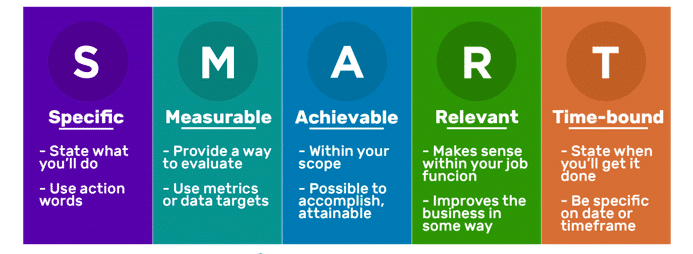
Answers to the 5 Most Googled Questions about Marketing Goals
PR & Marketing
Posted 08 Oct 2019
Suitable marketing measures are extremely important for companies to be successful. Therefore, there are many questions about this topic, which also shows in the Google search results. Particularly questions about marketing goals are often asked. In this article, we give answers to the five most-googled questions about marketing goals.
Marketing goals are specific goals of the marketing department. They define the results that the marketing department needs to achieve. A marketing goal should always be measurable. The difference from a company goal is that the latter defines general expectations in a certain period of time: “We want to increase our market share next year by ten percent.” Corporate goals are the foundation for all corporate activities and decisions.
Marketing goals should help to realize these superior corporate goals. For example: “By increasing the online marketing budget by 20 percent, we want to increase our company’s market share by ten percent next year.” Other marketing goals could include improving your company’s image, strengthening trust in your brand, or increasing customer loyalty.
Marketing goals can be classified as quantitative and qualitative goals. The quantitative goals are objectively measurable and are based on numbers. This makes the final verification of the results very easy. Qualitative marketing goals cannot be clearly defined by numbers, for example, customer satisfaction or customer loyalty.
Defining your own marketing goals is an important process. First of all, it is necessary to already have your company goals defined in advance because marketing is not an end in itself – every company wants to achieve a certain goal with it. At the same time, marketing goals include actions to check whether the goals have been achieved after a certain period of time. When defining the goals, the first thing is to specify the actual value and the target value. Marketing goals can be defined through the SMART formula.
In addition, it should be ensured that there is a harmony between the different goals, for example with this definition: “The scrap during production should be reduced from 5 percent to 3 percent, the costs of production should be reduced by 4 percent.” At least, however, there should be a difference between the goals – the different goals do not promote or prevent each other.
An actual conflict between the goals should not appear. An example of a conflict of goals would be: “Advertising costs must be reduced by 18 percent, while sales are to increase by 25 percent.” In such a case, managers have to set priorities – the more important goal should be pursued.
Furthermore, you should avoid target antinomies, i.e. when goals exclude each other.
Defining marketing goals is essential for your business. It is one way to measure whether the respective measures were successful. This is especially relevant when companies cooperate with external service providers or when they want to communicate the success of a campaign to the management level. If the goal is to “increase the market share by 5 percent by the end of the year”, it becomes very clear if the goal has been achieved at the end of the period – in contrast to the vague goal of “increasing the market share”. A clearly defined goal helps everyone involved in the project to motivate themselves.
When working with external service providers or other departments, marketing goals combined with a marketing strategy lead to the targeted realization of all actions. It is also important to agree on intermediate goals. This makes it possible to monitor the success step by step.
“We must increase customer satisfaction” is not a significant marketing goal. The SMART formula can be used to define better and more precise goals. This is a very practical and target-oriented method to develop new goals that are meaningful, achievable and clearly verifiable.

The SMART formula is almost always applicable. Sometimes, however, it is necessary to define the goals even more precisely.
The next step is to implement the marketing objectives successfully. It makes sense to work out a marketing strategy for the implementation. There are several ways to create a successful campaign. Which strategy is suitable for your company depends on the budget and the target group.
The marketing strategy serves as a clear route to the goal. It is very important to set clear intermediate goals in order to be able to continuously monitor the success of the measures and take countermeasures if necessary. Especially for small companies, it is recommended not to set too many marketing goals but to focus on a few. It can also make sense to have the marketing work taken over by a professional agency. This is one way to quickly achieve and exceed your own marketing goals with an individually developed concept.
HBI’s consultants are happy to support you in developing and implementing your marketing goals. Please contact us here.